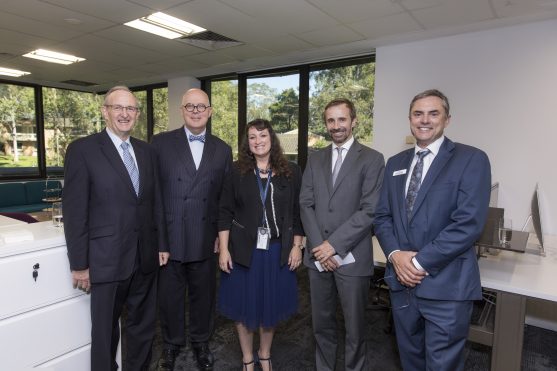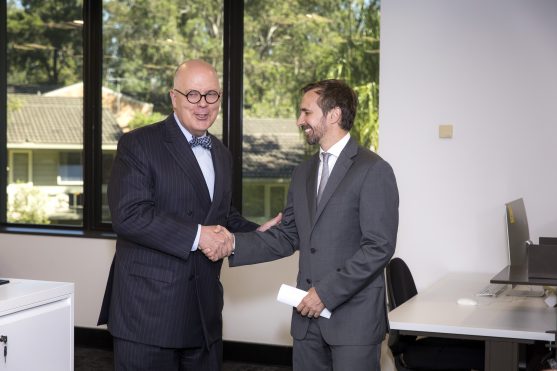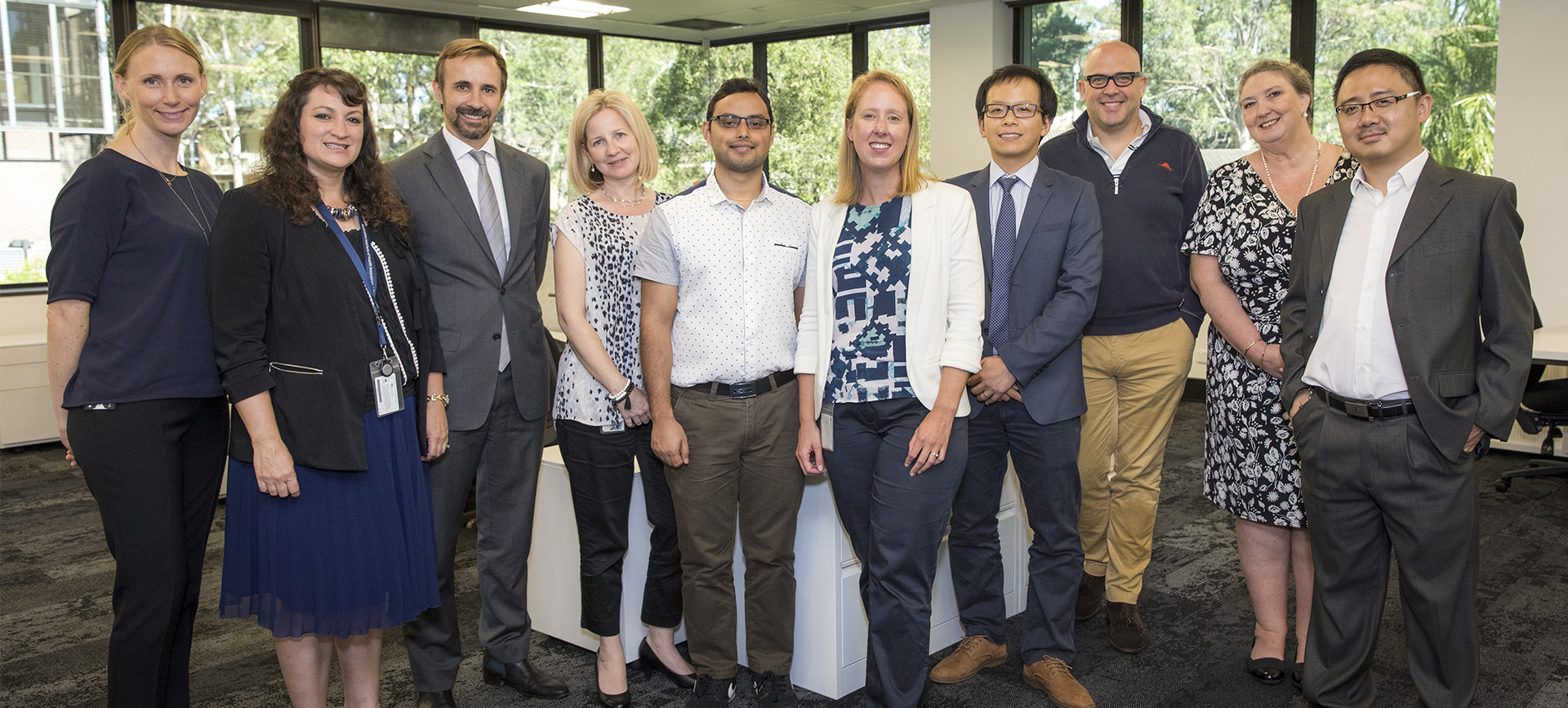From left: Emma Olin, Dr Liz Schroeder, Dr Henry Cutler, Ashley Soytemiz, Rajan Sharma, Dr Bonny Parkinson, Dr Zhiming Cheng, Dr Ross McLoud, Meredith Lill and Yuanyuan Gu.
The Vice-Chancellor, Professor S Bruce Dowton, joined The Centre for the Health Economy (MUCHE) to celebrate their new offices and research projects last week. The event was an opportunity for Professor Dowton to learn about the research work that the Centre is undertaking and to welcome new members of the team.

From left: Adjunct Professor Peter O’Byrne, Professor S Bruce Dowton, Vice-Chancellor, Dr Liz Schroeder, Dr Henry Cutler and Dr Jim Hungerford.
Developed by the Executive Dean of the Faculty of Business and Economics, with the assistance of the Executive Dean of the Faculty of Human Sciences, in 2013, MUCHE was included as one of the University’s strategic initiatives in Our University: A Framing of Futures.
Referring to MUCHE’s development, Professor Dowton explained how its inception complemented the new direction that the University is taking, and that he was delighted that MUCHE was meeting the University objectives as a strategic priority element; an “Innovation nexus where Macquarie and our partners contribute solutions to the world and develop lasting relationships”.
“Health economics is an important and burgeoning area in healthcare, particularly as countries such as ours learn to grapple with increased health expenditure generated by an ageing population and new technology.”
“I’m delighted MUCHE is working closely with the campus community, such as Faculty of Human Sciences, Faculty of Business and Economics, and Faculty of Medicine and Health Sciences; and research centres, such as the Australian Institute of Health Innovation and the Centre for Emotional Health.”
He also noted that MUCHE contributes to four out of the five strategic research goals in the research framework, “World-leading research: World-changing-impact.”
“That’s what’s so special about Macquarie University. We’ve always seen the possibilities and been nimble enough to realise them. MUCHE is a good example of how our offering is much stronger when the collective minds across the Campus work together,” he said.
Professor Dowton thanked Dr Henry Cutler, the Centre Director, the Centre team, and the Industry Advisory Committee for their dedication and hard work.

From Left: Vice-Chancellor Professor S Bruce Dowton and Dr Henry Cutler
MUCHE has completed or is currently completing 16 research projects, totaling more than $3 million in research income. Team members have worked with government and non-government organisations, such as the Federal Department of Health, NSW Ministry of Health, the Black Dog Institute, and Central Coast and Sydney local health districts.
“Building relationships with key leaders in government and non-government organisations has helped us better understand where MUCHE can add value to the public policy debate. Our focus research areas include aged care, integrated care, medical technology, mental health and disability care. We want to create a world where decision makers are empowered with applied, trusted and influential research on health and human services policy and systems,” he said.
“Working closely with our Campus colleagues allows us to differentiate MUCHE from other university research centres, and to deliver leading innovative and impactful research,” he explained.
MUCHE has also developed a successful external training program aimed at educating health care system clinicians and managers about health economics. It has also held nearly 20 external Thought Leadership events to debate public policy, with topics ranging from the aged care workforce to offering greater choice for public hospital patients when seeking elective surgery.
With the rapid growth in research and training activities, MUCHE has grown from two people at the start of 2015 to 10 people today. It is also looking to recruit another four researchers in the next six months and aims to have 25 researchers by the end of 2019.


 Back to homepage
Back to homepage
Comments
We encourage active and constructive debate through our comments section, but please remain respectful. Your first and last name will be published alongside your comment.
Comments will not be pre-moderated but any comments deemed to be offensive, obscene, intimidating, discriminatory or defamatory will be removed and further action may be taken where such conduct breaches University policy or standards. Please keep in mind that This Week is a public site and comments should not contain information that is confidential or commercial in confidence.